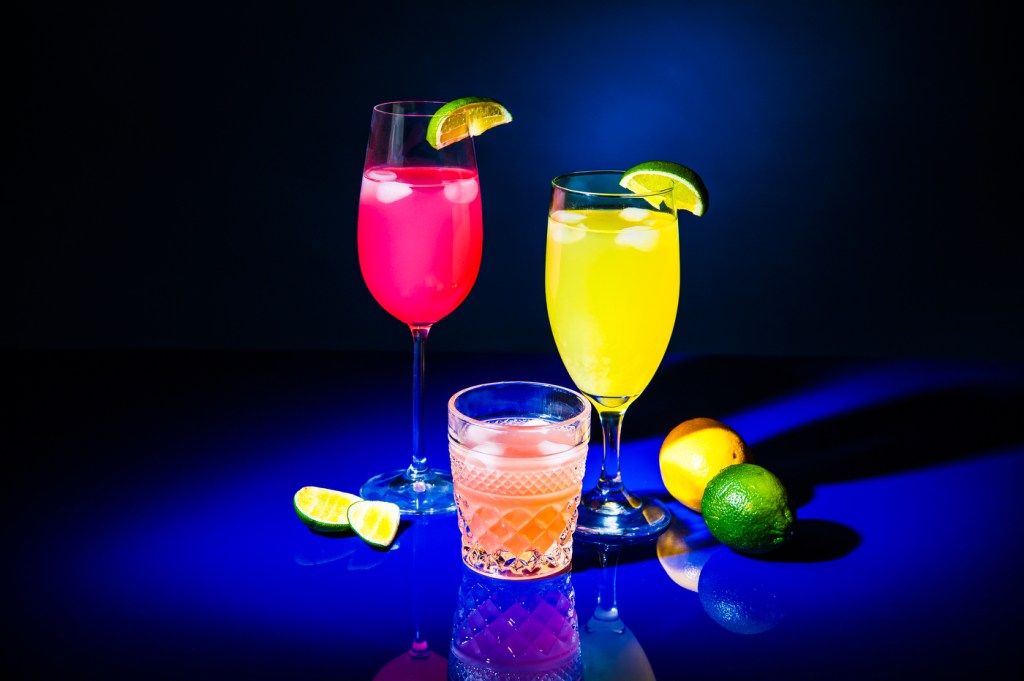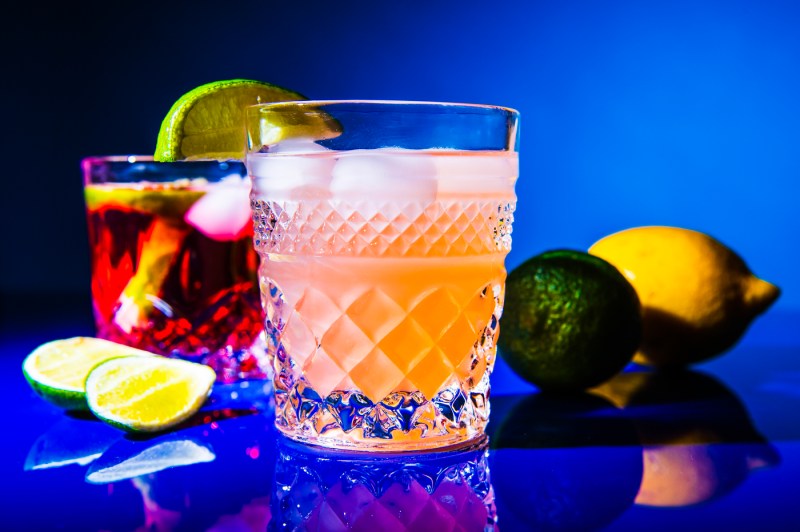Are mocktails better for you than cocktails? Experts suggest limiting intake of sugary drinks
Many people swap out alcohol for spirit-free alternatives for Dry January, but a Northeastern diet expert says the sugar in mocktails can pose similar problems as alcohol.

It might be Dry January, a New Year’s resolution or just a general curiosity in sobriety, but at the start of each year, millions of American adults skip out on drinking.
This has become easier than ever thanks to the growing prominence of non-alcoholic beverages, including mocktails. A staple now on most drinks menus, mocktails mix cocktail staples like fruit juices, syrups and sparkling waters, but leave out the spirits.
“January comes around and everybody is interested in being the best selves they can be for the next year,” says Rachel Rodgers, an associate professor of applied psychology at Northeastern University. “(Not drinking) is also grounded in this idea of it being somewhat virtuous to be pursuing something that could be healthy, whether or not.”
Janice Maras, associate teaching professor in health science and director of the Dietary Assessment Center at Northeastern, says many Americans are turning to this while re-evaluating their drinking after a spike in consumption during the COVID-19 pandemic.

“Mocktails are becoming really popular,” Maras says. “You can get them at bars. … There’s whole brands coming out now so you can make your own or buy different brands.”
However, Maras says many mocktails contain sugar, which can pose its own set of health risks just as alcohol can.
Alcohol consumption poses obvious health risks: Maras says it can harm the gut and liver and cause weight gain. It can also impair your mental state, prompting depression, fatigue, memory loss and even addiction, if too much is consumed.
“It stimulates the brain,” Maras says. “It goes to the brain quickly. … It can overstimulate the reward system in the brain and then you can get into the addictive part where it starts to damage some of the neurons.”
There’s sucrose in many of the ingredients in mocktails that Maras says is the equivalent of table sugar. Too much of this in the body can lead to overstimulation of the pancreas to release insulin, leading to insulin resistance.
On top of sucrose, many of these mocktails also contain high-fructose corn syrup, which Maras says is in many processed foods and adds sweetness.
Editor’s Picks
“It’s almost 55 percent fructose,” Maras says. “This is what is kind of addictive. We’re putting this into a lot of these drinks and a lot of the food we’re eating today. You’re almost counteracting the alcohol because you’re using this type of ingredient, which is known to be very addictive. It causes similar problems to alcohol because the body metabolizes it in the liver and quickly goes to the brain, making you crave more sweetness.”
However, cocktails have one important side effect that mocktails lack. Alcohol can impair your judgment in a way a spirit-free drink will not, Maras says.
“With mocktails, you’re not getting into accidents,” she adds. “It won’t affect your judgment.”
Due to this, many may opt for a mocktail over a cocktail. But as with everything else, the key is moderation, Rodgers says.
“My general philosophy is anything in moderation,” she says. “The problem is feeling one can’t have something and therefore compensating with something else that may not actually be a better choice if it’s being consumed in large quantities.”
Alcohol in limited quantities can even be helpful: Maras says studies have shown moderate amounts of red wine has shown a reduction in cardiovascular disease.
If your goal this Dry January is steering clear of sugar, consider swapping out alcohol with a sparkling or flavored water or an herbal or green tea, Maras suggested.
“There’s lots of different types of drinks coming out that give you a kind of a substitute for these,” Maras says. “But you have to just remember one teaspoon is four grams of sugar. When checking food labels, be sure to look for added sugars.”











